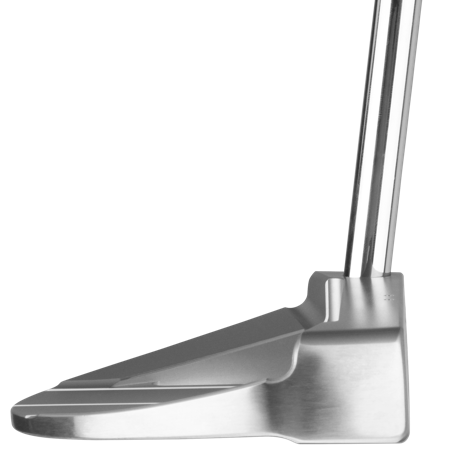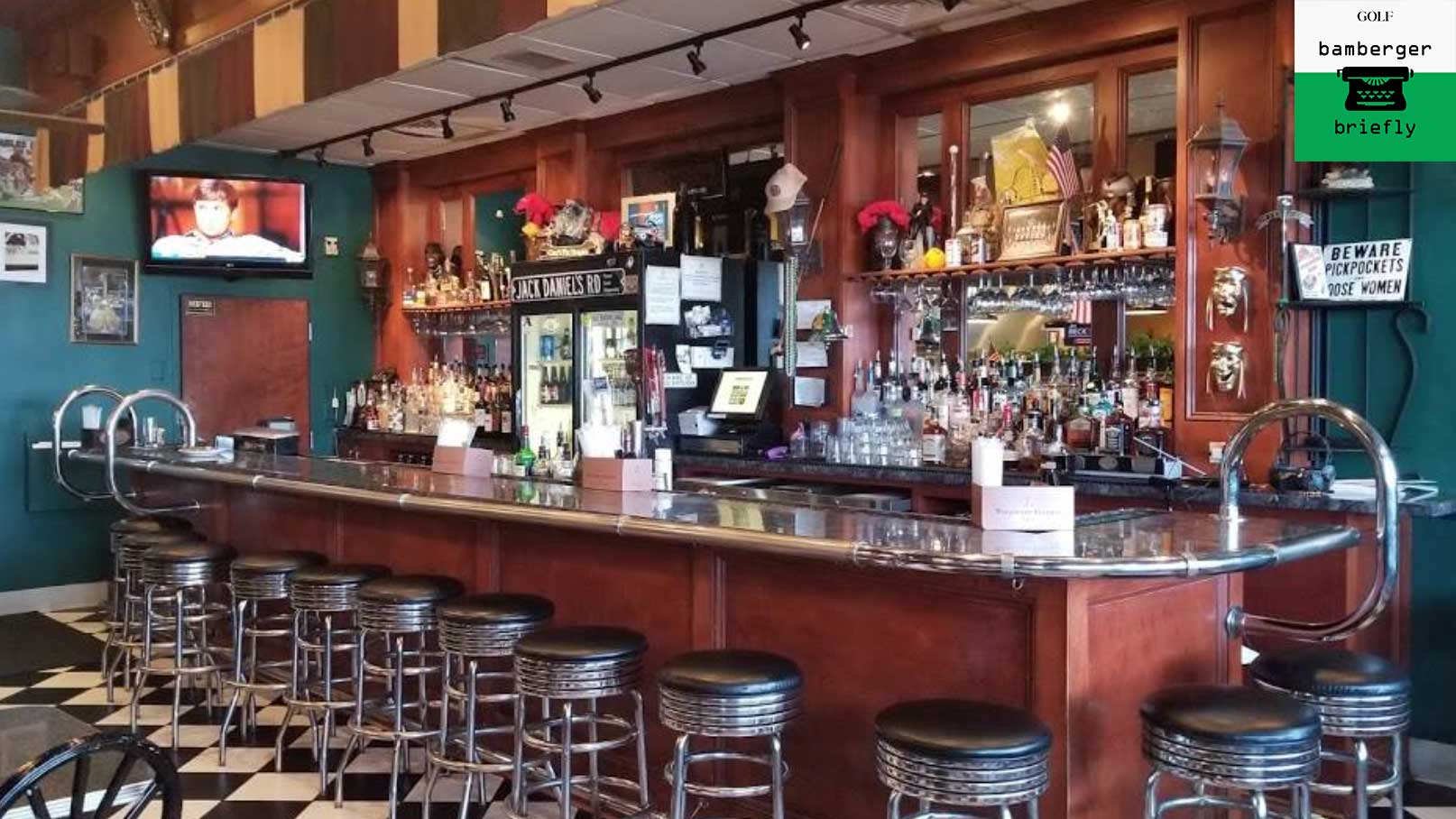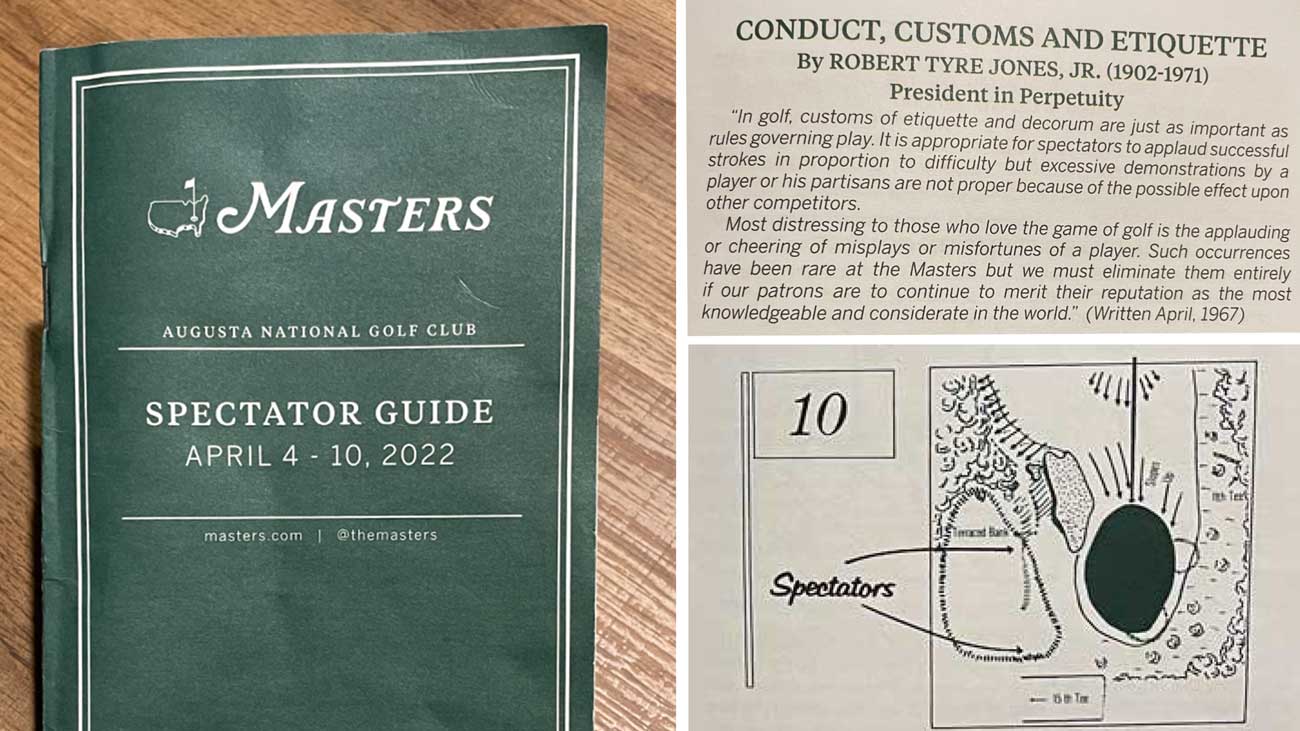
If you make it to a Masters, be sure to snag a Spectator Guide.
Alan Bastable
No matter how many Masters you’ve attended, on each visit you come away with an appreciation for something that previously eluded you. A different vantage point of a hole. A salty or savory concession snack. A merch offering that you couldn’t resist.
This year, I fell for a 68-page booklet.
Its official name — everything at the Masters has an official name — is the Spectator Guide, and it’s distributed to patrons at no charge. There are many things I love about the handsome handbill. Here, we shall celebrate four of them:
1. Its size. At 7¾” x 4¼”, it slips snuggly into your pocket, front or back.
2. Its old-school simplicity. All the information is conveyed via words, numbers and pencil sketches, printed in black and green ink. The only variations from that sequence are the full-color course-map illustration that extends across pages 34-35, and the cellphone policy on page 2, printed in red and all-caps. (Yep, intentionally hard to miss.) The only sign of modernity is the @themasters social handle on the booklet’s cover.
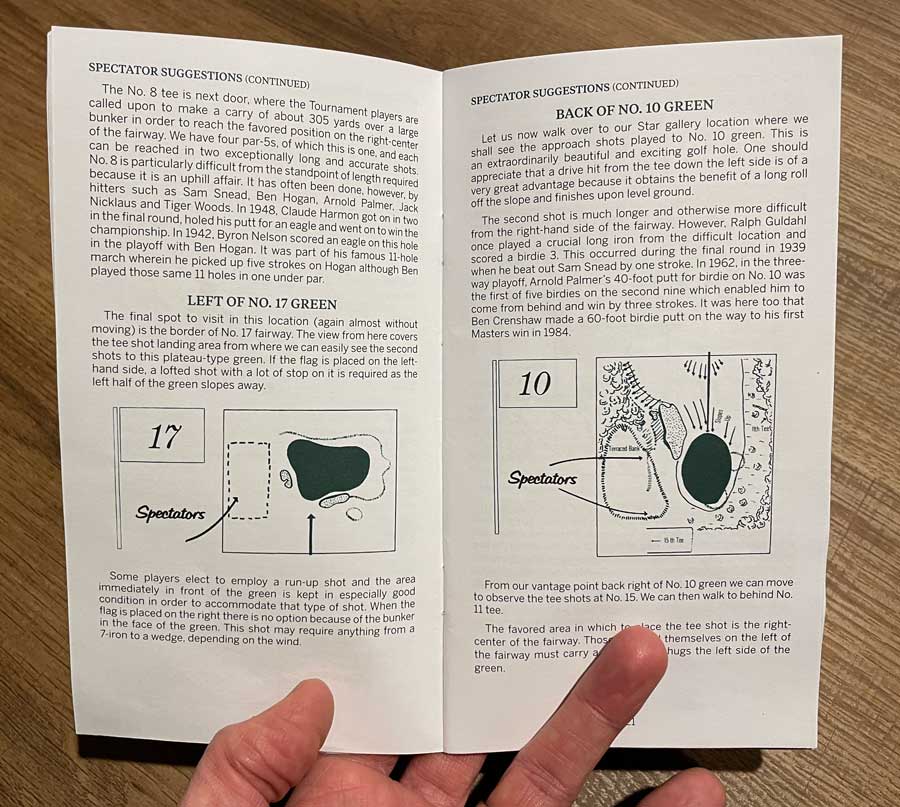
Looking for the best spots from which to take in the action? The Spectator Guide has you covered.
Alan Bastable
3. Its notes section. The last four pages of the booklet are empty, reserved for thoughts or observations that patrons might want to jot down. You never know when the beauty of Amen Corner — or going seven hours without the distraction of your phone — might move you to put pen to paper.
4. Its contents. This, of course, is where the manual really shines. It’s like a Masters search engine — on paper! It has it all: past winners, the scorecard, hole-by-hole descriptions, player bios, significant dates in the tournament’s history, even instructions from Augusta National co-founder Bobby Jones himself about how to cheer: “It is appropriate for spectators to applaud successful strokes in proportion to difficulty but excessive demonstrations by a player or his partisans are not proper because of the possible effect upon other competitors.”
Those oft-cited patron rules we always hear about? They’re all in here, too, spelled out in unequivocal language:
—”Unsolicited or consistent calls from the gallery are prohibited”
—”Running is considered to be unacceptable behavior”
—”Electronic devices (including phones, laptops, tablets are beepers) are strictly prohibited on the grounds
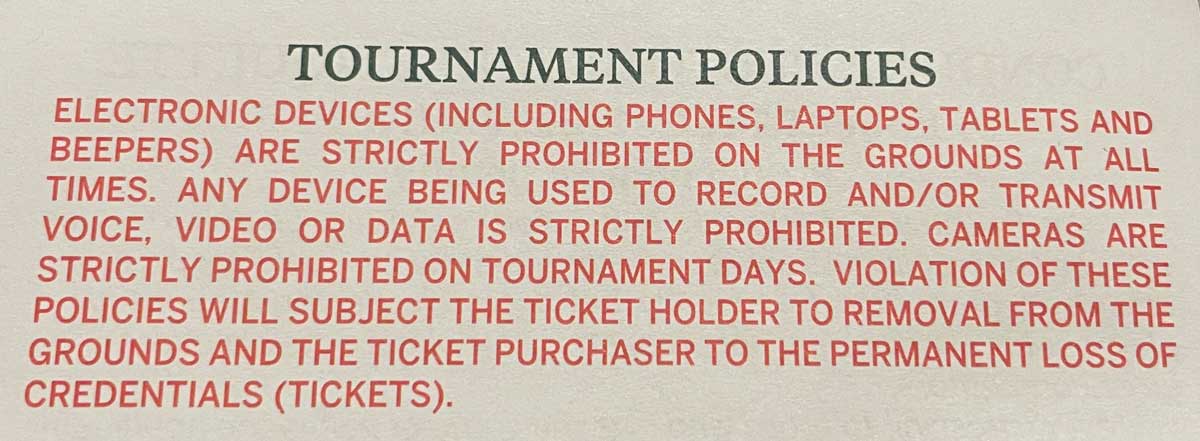
First item under tournament policies: no phones, folks.
Alan Bastable
—”A patron is allowed to bring only one chair onto the grounds,” and “seats in observation stands are not to be reserved”
—Among the prohibited items are flags, stroller and selfied sticks
The highlight, though, is the Spectator Suggestions section, also written by Jones, in 1949, in which he details the five best spots on the course for taking in the action — “gallery centers,” in his parlance. Jones’ top recs: behind the 2nd and 7th greens; left of the 17th green; behind the 10th green; behind the 12th tee; and left of the 15th green. (The last of those is my personal favorite spot; from the top of the grandstand there, you can see the approaches into 15 and the tee shots behind you on the par-3 16th.)
As for the practice of trailing one group around the course? Hard pass, Jones wrote — it’s the “least satisfactory way of watching a medal play tournament.”
Indeed, if you tried to follow Tiger Woods around Augusta last week, you know exactly what Jones meant.


